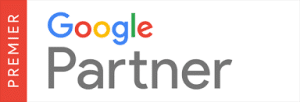Local businesses advertising on the Google Search Network and looking to drive people actively searching for their services and/or brand to their site can often find relevant keywords to implement in ad campaigns fairly easily. However, the challenges that can come with advertising a smaller business include generating sufficient search volume over their targeted area(s) while effectively bidding within their ad budget. A keyword match type strategy is a significant variable in this equation.
Businesses in competitive markets, such as a local doctor’s office, dental office, or family law firm, can use phrase match keywords to help increase relevant search volume within their budget.
Google defines Phrase match as “To show your ads on searches that include the meaning of your keyword. The meaning of the keyword can be implied, and user searches can be a more specific form of the meaning.” To put it simply, phrase match is designed to go beyond just capturing relevant searchers looking within the tight parameters of exact match keywords while also not going off the rails as broad match keywords can. However, there are still things to watch out for when running phrase match keywords, especially when the keywords are more “general” to the industry.
Going back to the examples above, in a tightly populated area, such as a city or a state, there are countless doctors, dentists, and lawyers. These service-based businesses might run ad campaigns with highly sought-after keywords, such as “a dentist office,” “family law attorney,” or “doctors office near me.” When running ad campaigns on phrase match, it will find relevant searches, but it can go beyond how these keywords are exactly laid out. This is where competitor names can sneak in.
Here is an example of general phrase match keywords and competitor searches:
Dr. Arnold Wilson is a local dentist in Chicago running a General Dental Search campaign. He is running the phrase match keyword “dentist near me.” The word has been triggering searchers for “dr lauren rosenstein dentist” and “marion family dental chicago.” These are people looking for specific local dentists rather than general dental service searches. They’re still dentists in the area. However, the phrase match keyword “dentist near me” can still be triggered by these searches as it goes beyond just what the word exactly says.
Dr. Wilson does not want people actively searching for other specific dentists and potentially wasting his advertising budget on worthless clicks. It’s easy to say, ‘Just turn off phrase and run exact only,’ but that can see a drop in capturable search volume, especially if Dr. Wilson does not have the budget to outbid top spenders on the highest-searched relevant keywords. (Competitive industries like dental, medical, and law can see clicks get very expensive – sometimes $100 to $200 per click). This is where doing search queries and the use of negative keywords comes in.
Daily search query reports and adding the competitor name search terms as negatives to consistently stay on top of incoming traffic is one way to stay on top of irrelevant searches – this is a reactive situation as the competitors do have to show up in your search queries. A proactive step would be to research the names of competitors and add them all via a negative keyword list. This can allow phrase match keywords to bring in more search volume but not show on searches for specific competitors.
Of course, there are scenarios where a business might want to drive people actively searching for competitors to their business. These can then come in handy to not only capture those active searches but also see what kind of search data competitors are generating.
Just remember that phrase match search terms can still be relevant to the words themselves but not always the intent of searchers. Understand your goals, use phrase match wisely, and monitor your campaigns closely.




